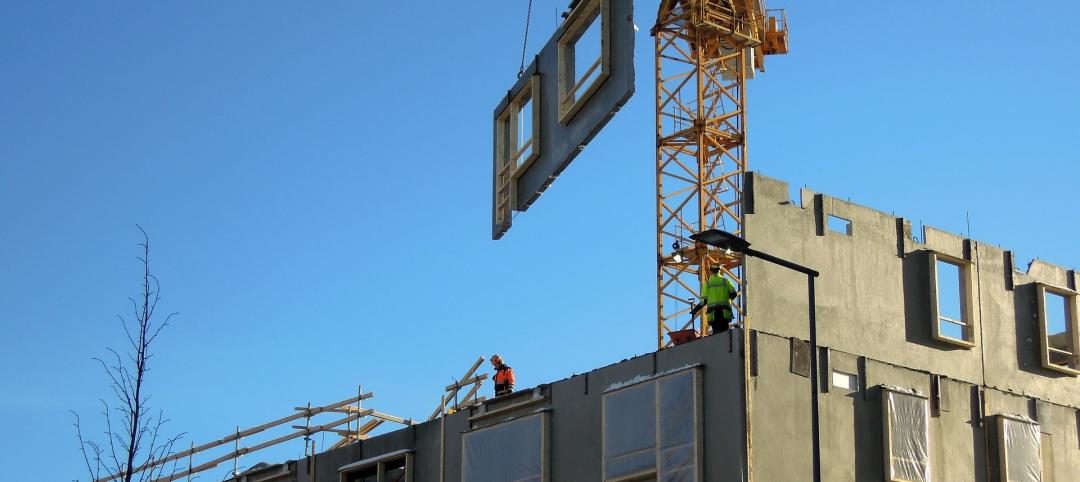Volunteers in Berkeley, Calif., are collecting signatures for the “Green Downtown & Public Commons Initiative,” a controversial measure that critics charge would halt some development in the city. The initiative has higher green standards and less flexible design guidelines—factors that developers say could stop two major projects, a proposed 180-foot high hotel and a 17-story apartment tower.
The initiative would mandate that developers planning a project taller than 60 feet use the “Green Pathways” provision of the Downtown Area Plan. This rule—currently optional—says that a developer can provide a higher level of community benefits in exchange for a fast-track approval process. Under Green Pathways, developers have to make structures LEED Platinum rather than LEED Gold; build more parking; include spaces for bicycles, electric cars and the handicapped; pay prevailing wages to construction and hotel workers; and make sure that half of a project’s construction workers are Berkeley residents.
The financial proposition for a high-rise hotel in Berkeley is fragile, according to a representative of the proposed hotel, and the new initiative would require additional setbacks and restrictions that would make it impossible to have enough rooms on each floor to make the project viable. The initiative calls for a minimum 15-foot setback, but the hotel developer says the structure must have a 10-foot setback to have enough space per floor.
City Councilman Jesse Arreguín, who supports the measure, says it is not intended to stop development, but is a way of getting developers to contribute more benefits to the downtown area.
Related Stories
Multifamily Housing | Jun 6, 2023
Minnesota expected to adopt building code that would cut energy use by 80%
Minnesota Gov. Tim Walz is expected to soon sign a bill that would change the state’s commercial building code so that new structures would use 80% less energy when compared to a 2004 baseline standard. The legislation aims for full implementation of the new code by 2036.
Codes and Standards | Jun 2, 2023
Supreme Court drastically reduces wetland areas impacted by Clean Water Act
A recent Supreme Court decision that substantially narrowed the Environmental Protection Agency’s authority to regulate millions of acres of wetlands is expected to open more land for development. More than half of the nation’s wetlands could lose protection under the Clean Water Act, according to environmentalists and legal analysts.
Multifamily Housing | May 30, 2023
Boston’s new stretch code requires new multifamily structures to meet Passive House building requirements
Phius certifications are expected to become more common as states and cities boost green building standards. The City of Boston recently adopted Massachusetts’s so-called opt-in building code, a set of sustainability standards that goes beyond the standard state code.
Contractors | May 26, 2023
Enhanced use of data is crucial for improving construction job site safety
Executives with major construction companies say new digital tools are allowing them to use data more effectively to reduce serious safety incidents and improve job site safety.
Affordable Housing | May 17, 2023
Affordable housing advocates push for community-owned homes over investment properties
Panelists participating in a recent webinar hosted by the Urban Institute discussed various actions that could help alleviate the nation’s affordable housing crisis. Among the possible remedies: inclusionary zoning policies, various reforms to increase local affordable housing stock, and fees on new development to offset the impact on public infrastructure.
Sponsored | Building Enclosure Systems | May 16, 2023
4 steps to a better building enclosure
Dividing the outside environment from the interior, the building enclosure is one of the most important parts of the structure. The enclosure not only defines the building’s aesthetic, but also protects occupants from the elements and facilitates a comfortable, controlled climate. With dozens of components comprising the exterior assemblies, from foundation to cladding to roof, figuring out which concerns to address first can be daunting.
Multifamily Housing | May 16, 2023
Legislators aim to make office-to-housing conversions easier
Lawmakers around the country are looking for ways to spur conversions of office space to residential use.cSuch projects come with challenges such as inadequate plumbing, not enough exterior-facing windows, and footprints that don’t easily lend themselves to residential use. These conditions raise the cost for developers.
BIM and Information Technology | May 8, 2023
BIM Council seeks public comments on BIM Standard-US Version 4
The Building Information Management (BIM) Council is seeking public comment on an updated national BIM standard. NBIMS-US V4 has been three years in the making and is scheduled to be released this fall.
Regulations | May 8, 2023
Supreme Court case likely to have huge impact on Clean Water Act
A case before the Supreme Court will likely determine how the Clean Water Act is interpreted and the ruling could open up new areas for development within or adjacent to wetlands.
Codes and Standards | May 8, 2023
New ASHRAE standard defines ‘zero energy’ and ‘zero carbon’ buildings
ASHRAE has released a new standard that defines the terms ‘Zero Energy’ and ‘Zero Carbon’ to describe buildings. ANSI/ASHRAE Standard 228-2023, Standard Method of Evaluating Zero Net Energy and Zero Net Carbon Building Performance, sets requirements for evaluating whether a building or group of buildings meets a definition of “zero net energy” or a definition of “zero net carbon” during operation.

















